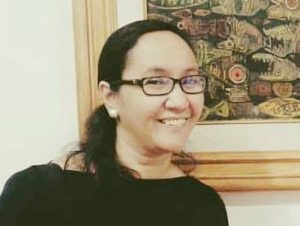 GIVEN the right condition and proper support, persons with disability can contribute to the workplace and in the community.
GIVEN the right condition and proper support, persons with disability can contribute to the workplace and in the community.
This is shown in the initiative of the private sector in coordination with local government units where support is provided through the access-to-work model which prepares job seekers and employers.
In this scheme, education and advocacy takes the center-stage, where the management and the rank and file are capacitated on how to work with and support people with disability. Through social marketing, companies gain a greater appreciation on the inclusion of PWDs in the workplace.
Over five years, Project Inclusion has proven that hiring people with disabilities could be beneficial not only to the person but also to the entire organization. Since 2013, Project inclusion has worked to improve access to work opportunities for PWDs and has already engaged over 25 companies from various industries .
This is significant if we consider that amidst us, PWDs continue to strive under circumstances that limits their capacity to fully engage and be productive. Only a slim profile could actually work their way through therapy and rehabilitation while the rest, most especially in low-income families have limited or even no access to basic services.
Think of the children with disabilities who could be further marginalized.
It has been awhile that my interest was piqued on the strong capacity of PWDs to contribute to the community. In Davao City, for instance, various initiatives have been undertaken by the Association of Differently-Abled Persons (ADAP) which has been steadfast not only in advocating for the rights of the differently abled person but also made sure that it works hand in hand with the local government and the private sector in ensuring access to employment, livelihood and even housing rights.
The journey could be challenging but with a human rights lens, the inclusivity of the PWDs and the initiatives that they have painstakingly undertaken are sustained. Policy advocacy also played a big role in upholding their rights which led to the passage of the Magna Carta. On July of 1998, ADAP finally got its recognition from the Local Government Unit of the Davao City under the Executive Order No. 23.
The Davao City experience is just one of the few LGU initiatives that can be considered as a best practice in upholding PWD rights. This time, the Project Inclusion aims to further expand this awareness on inclusivity on a greater scale.
Undertaken by Unilab Foundation, the Project Inclusion have since worked with various private companies on raising their consciousness on PWDs and in working with them. As the years of experience has shown, it has already facilitated the access to employment of PWDs. Today, more companies in the different sectors are reaping the benefit of an inclusive workplace.
Last week, I had a chance to observe a PWD in the workplace. He was working like anybody else and his colleagues were sensitive to his needs. Without pity and charity which treats a person like an object, this initiative could really be one of the kind if replicated in the different work stations, including in the public sector. For other workers in the organization, it could be an actual sensitization training to be able to work alongside PWDs and journey with them.
By their own measure, Project Inclusion was able to provide 600 Persons with Disability access to work opportunities from multinational corporations to social enterprises. It continues to champion inclusion among industry leaders.
This culture of inclusion is further tested with the accountability of government and private corporations to employ, at least one percent of all positions for persons with disability. Private corporations, on the other hand, with 100 employees are “encouraged to reserve at least one percent of all positions for persons with disability.”
Now, the challenge is for employers to answer the question: May 1% Ka Ba?
Email comments to roledan@gmail.com (Second of three-part series)

